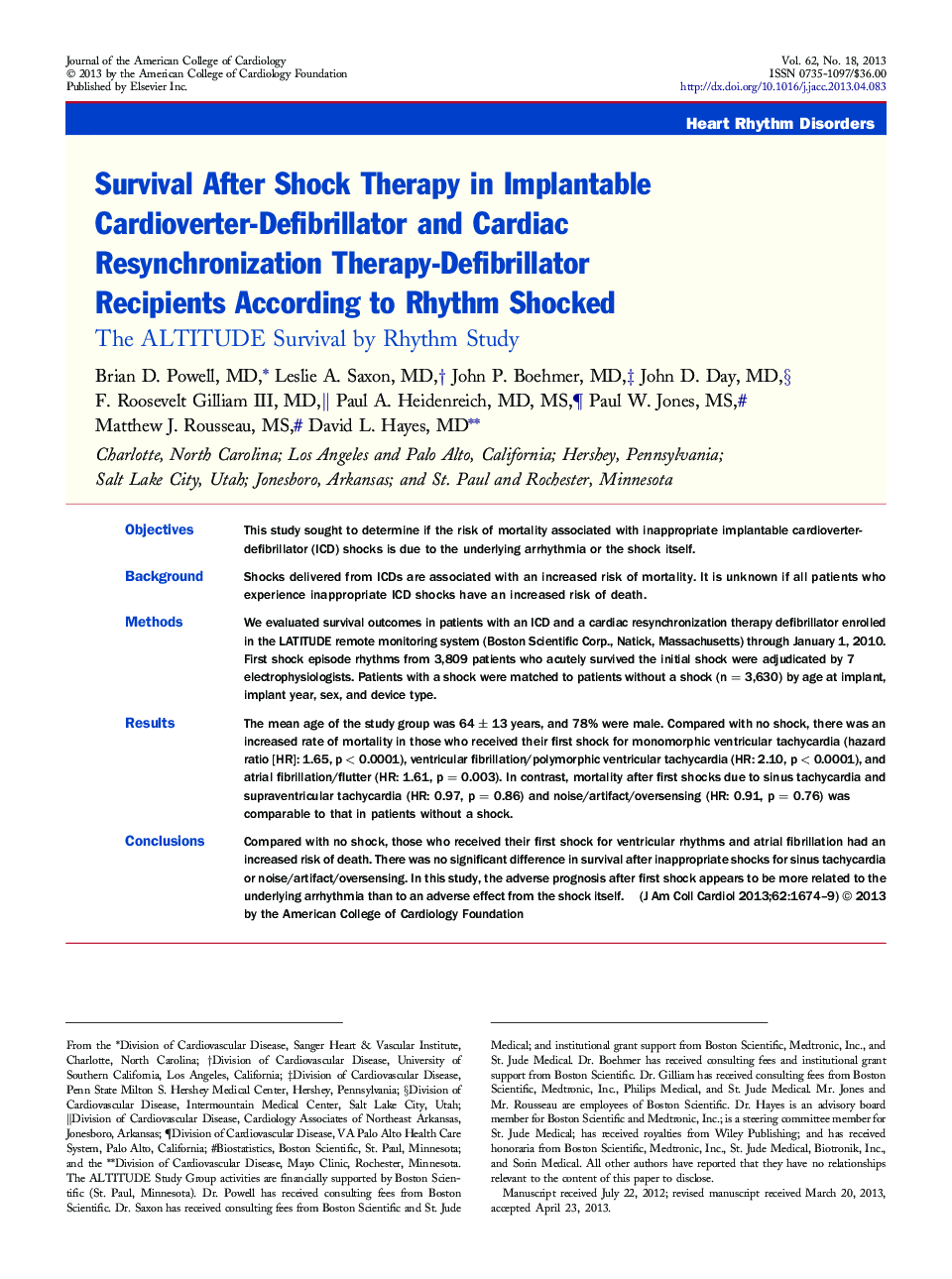| Article ID | Journal | Published Year | Pages | File Type |
|---|---|---|---|---|
| 5983029 | Journal of the American College of Cardiology | 2013 | 6 Pages |
ObjectivesThis study sought to determine if the risk of mortality associated with inappropriate implantable cardioverter-defibrillator (ICD) shocks is due to the underlying arrhythmia or the shock itself.BackgroundShocks delivered from ICDs are associated with an increased risk of mortality. It is unknown if all patients who experience inappropriate ICD shocks have an increased risk of death.MethodsWe evaluated survival outcomes in patients with an ICD and a cardiac resynchronization therapy defibrillator enrolled in the LATITUDE remote monitoring system (Boston Scientific Corp., Natick, Massachusetts) through January 1, 2010. First shock episode rhythms from 3,809 patients who acutely survived the initial shock were adjudicated by 7 electrophysiologists. Patients with a shock were matched to patients without a shock (n = 3,630) by age at implant, implant year, sex, and device type.ResultsThe mean age of the study group was 64 ± 13 years, and 78% were male. Compared with no shock, there was an increased rate of mortality in those who received their first shock for monomorphic ventricular tachycardia (hazard ratio [HR]: 1.65, p < 0.0001), ventricular fibrillation/polymorphic ventricular tachycardia (HR: 2.10, p < 0.0001), and atrial fibrillation/flutter (HR: 1.61, p = 0.003). In contrast, mortality after first shocks due to sinus tachycardia and supraventricular tachycardia (HR: 0.97, p = 0.86) and noise/artifact/oversensing (HR: 0.91, p = 0.76) was comparable to that in patients without a shock.ConclusionsCompared with no shock, those who received their first shock for ventricular rhythms and atrial fibrillation had an increased risk of death. There was no significant difference in survival after inappropriate shocks for sinus tachycardia or noise/artifact/oversensing. In this study, the adverse prognosis after first shock appears to be more related to the underlying arrhythmia than to an adverse effect from the shock itself.
